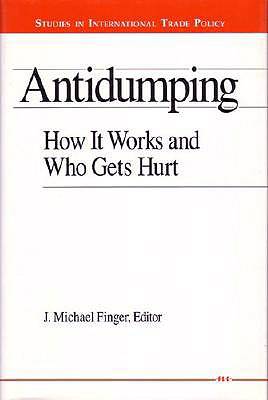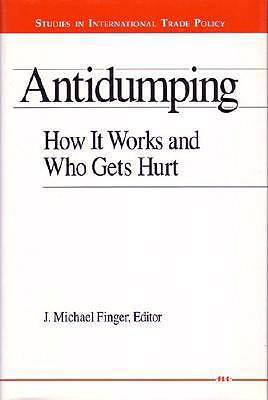
- Afhalen na 1 uur in een winkel met voorraad
- Gratis thuislevering in België vanaf € 30
- Ruim aanbod met 7 miljoen producten
- Afhalen na 1 uur in een winkel met voorraad
- Gratis thuislevering in België vanaf € 30
- Ruim aanbod met 7 miljoen producten
Zoeken
Omschrijving
Antidumping is a threat to the liberal trading system that post-World War II Western leadership struggled courageously and effectively to create. It offers a GATT-legal means to destroy the GATT system, leading to restrictions on more U.S. imports than even the Multi-Fibre Arrangement. This book presents studies of five industries whose exports have been hard hit by antidumping actions. Each of these studies avoids the legalisms and the jargon of antidumping and answers a straightforward question: was the national economic interest of either the exporting or the importing country improved by the antidumping actions that were taken? The contributors not only ask questions and present viable answers, but also provide a proposal that offers both consistence with GATT and good economics.This book will be of interest to lawyers, political scientists, economists, and business people. It has intentionally avoided the specialized language of trade regulation so that it may be more readily accessible to anyone interested in international commercial policy.
Specificaties
Betrokkenen
- Auteur(s):
- Uitgeverij:
Inhoud
- Aantal bladzijden:
- 288
- Taal:
- Engels
- Reeks:
Eigenschappen
- Productcode (EAN):
- 9780472104062
- Verschijningsdatum:
- 8/04/1993
- Uitvoering:
- Hardcover
- Formaat:
- Genaaid
- Afmetingen:
- 163 mm x 236 mm
- Gewicht:
- 635 g

Alleen bij Standaard Boekhandel
+ 305 punten op je klantenkaart van Standaard Boekhandel
Beoordelingen
We publiceren alleen reviews die voldoen aan de voorwaarden voor reviews. Bekijk onze voorwaarden voor reviews.








